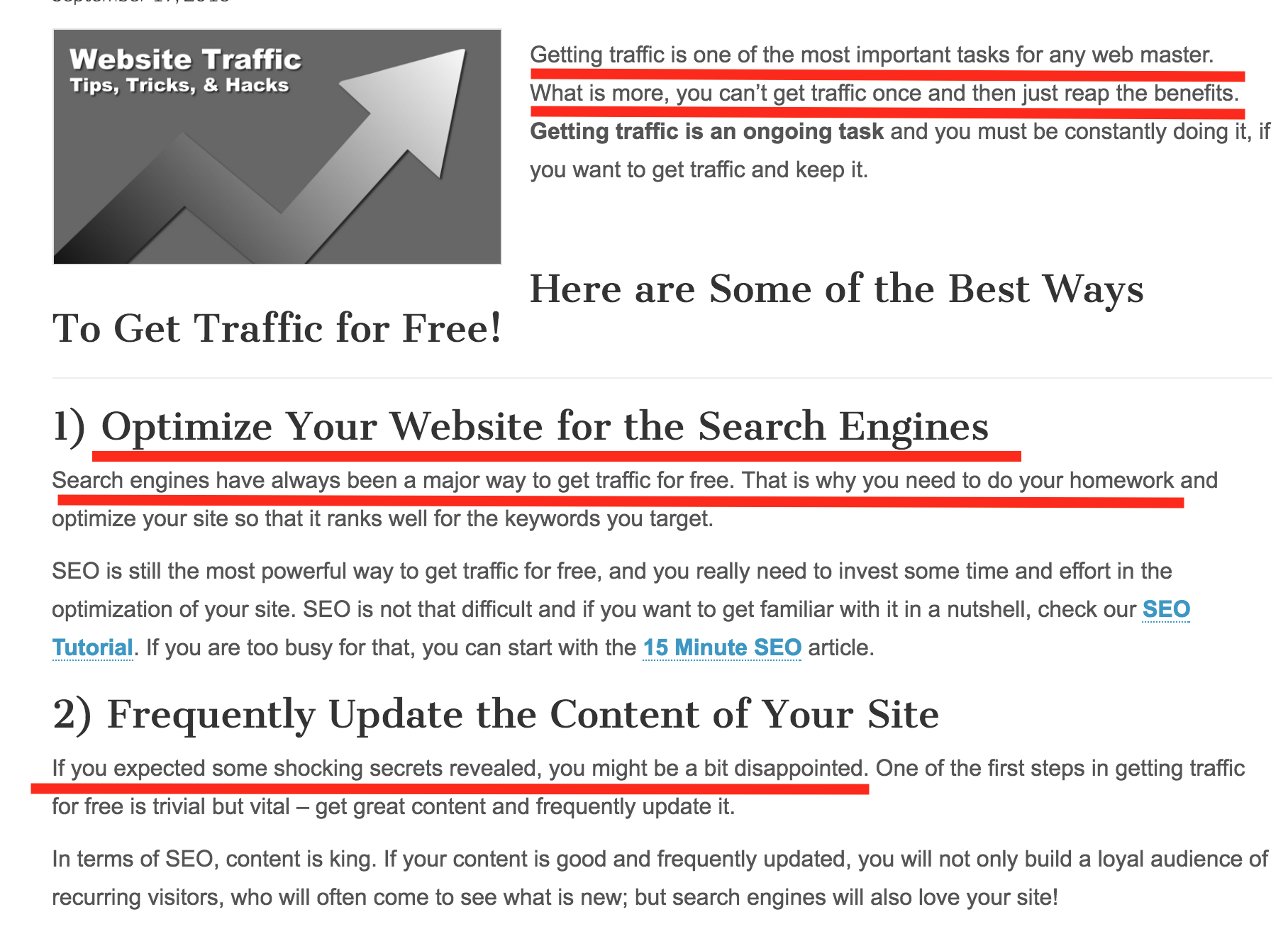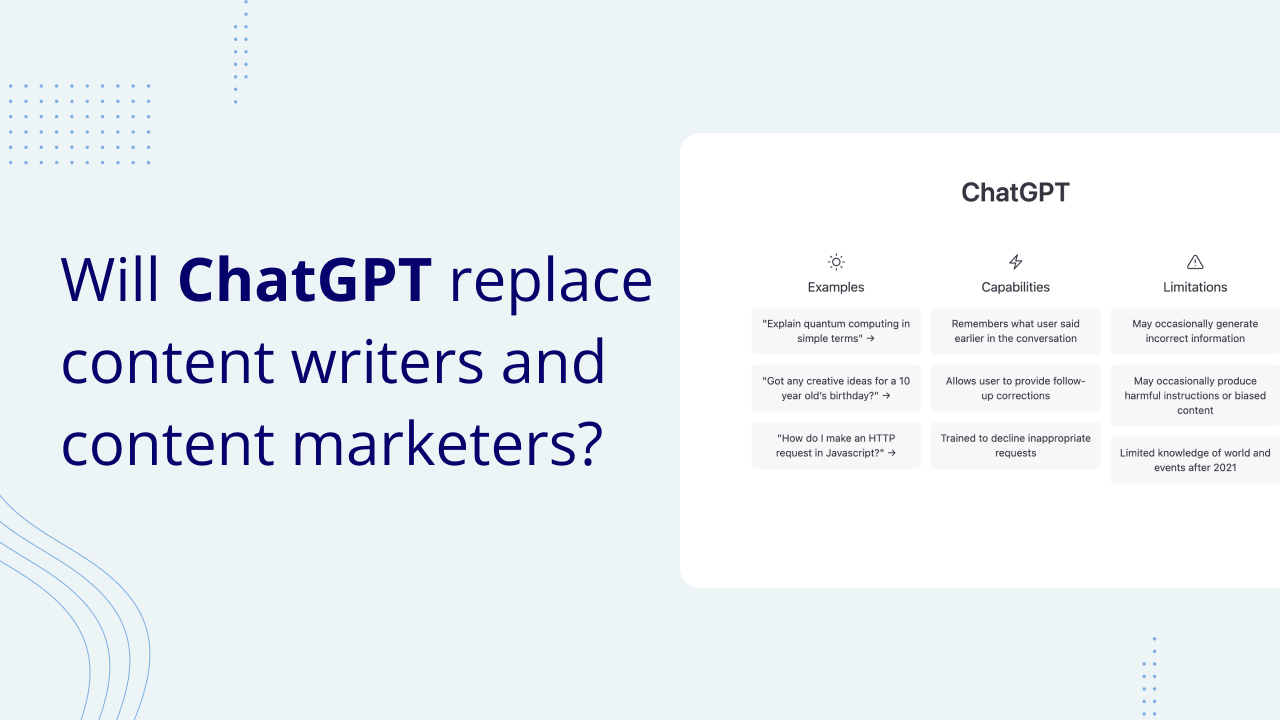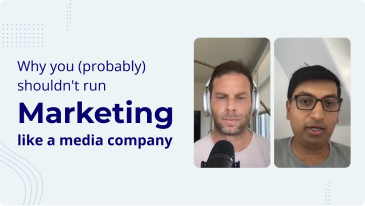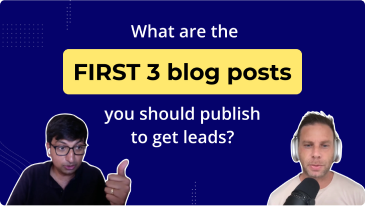How many times have you clicked into an article expecting to read something great — only to be disappointed by how bland, re-hashed, and unoriginal the content is?
You see a headline that makes great promises, something like:
25 of the Best Ways to Increase Your SEO by Tomorrow
Then you click into the article expecting to find some great SEO tips and are left with takeaways like:
“1. Make sure you’re entering keywords in the headline, body and meta title of your blog post.”
“3. Links are the best way to increase your SEO. Get more of them!”
You think to yourself:
Wow… I just wasted my time reading this POS article. I’m never going to read another article by that company.
And while you might think this example is funny…don’t be so quick to laugh.
I challenge you to take a look at your own blog to make sure you’re not also creating “mirage content.” Because, in our experience doing deep dive reviews of dozens of company blogs over the past few months, it’s extremely common.
It’s the reason you hear the following problems over and over again:
“Our content looks fine, but we’re just not getting traffic to it.”
“We’re writing on the same topics as our competitors but people aren’t linking to our pieces.”
“We get some traffic, but no one converts. I’m not sure the blog is actually getting us leads.”
“Mirage Content” Is The Reason Readers Don’t Care About Your Blog
Mirage content is content that looks good on the surface, but after giving it a deeper look, you realize it’s nothing but high-level fluff.
Let’s be honest, it’s also the majority of blog content on the internet.
Here’s why it’s so common. It stems from:
- A writer not having enough real experience (or the ability to give real examples) to write a compelling post on the subject they’re supposed to write in-depth about.
- A lack of specificity on the topic the author is writing about — I believe lack of specificity and lack of experience are correlated. Naturally, you’re more specific if you know a topic inside and out.
If you’re currently creating mirage content, you run the risk of losing potential customers due to the fact that readers think you don’t know what you’re talking about. But what’s worse is you also run the risk of investing in content marketing and not being able to grow.
Here’s an example of what I mean:
Let’s dissect the post on the left (mirage) vs. the post on the right (deep expertise) to elaborate my point:
The first thing that I want to point out is that all I did to find these two articles was a simple Google Search for the term “how to get more SEO traffic.”
I wanted to point this out because, even if your blog is getting a LOT of traffic (from SEO or another source), it doesn’t mean your audience will trust the advice given or ultimately convert on the post.
The piece of content on the left is from a site that sells SEO services to web masters and site owners. They are trying to convert more people to their services from content.
The piece of content on the right is from Brian Dean who is a known SEO expert who writes top tier content. He also sells SEO training to businesses and site owners.
Both likely have knowledge on the topic they’re writing about, but one is creating mirage content and the other isn’t.
Let’s put ourselves in the reader’s shoes for a second…
Imagine you run a blog, you’re a CEO, or work as a content marketer and you have (or have been given) a budget to try to increase SEO rankings.
You decide you’re going to figure out how to increase rankings for your site by Googling “how to get more SEO traffic”. You hope this will lead you to some solid answers.
Then you come across this search result (example on the left from above). You click in, and this is what you find…
You’re told things like:
“Getting traffic is one of the most important things for any web master. What is more, you can’t get traffic once and then just reap the benefits (???)”
That you need to “Optimize Your Website for the Search Engines”
That you need to “Update the content on your website”
If you’re a site owner, marketer or a CEO who is even somewhat familiar with SEO, you’re probably thinking to yourself “No shit, thanks for the advice”. And then you bounce to go find an article with better advice.
There’s no way you would do business with a company that gives such elementary advice on a topic when they’re supposed to be the experts in this field. If you’re trying to attract high-value clients, writing content like this to attract them will not work.
So you keep looking for advice and you come across this:
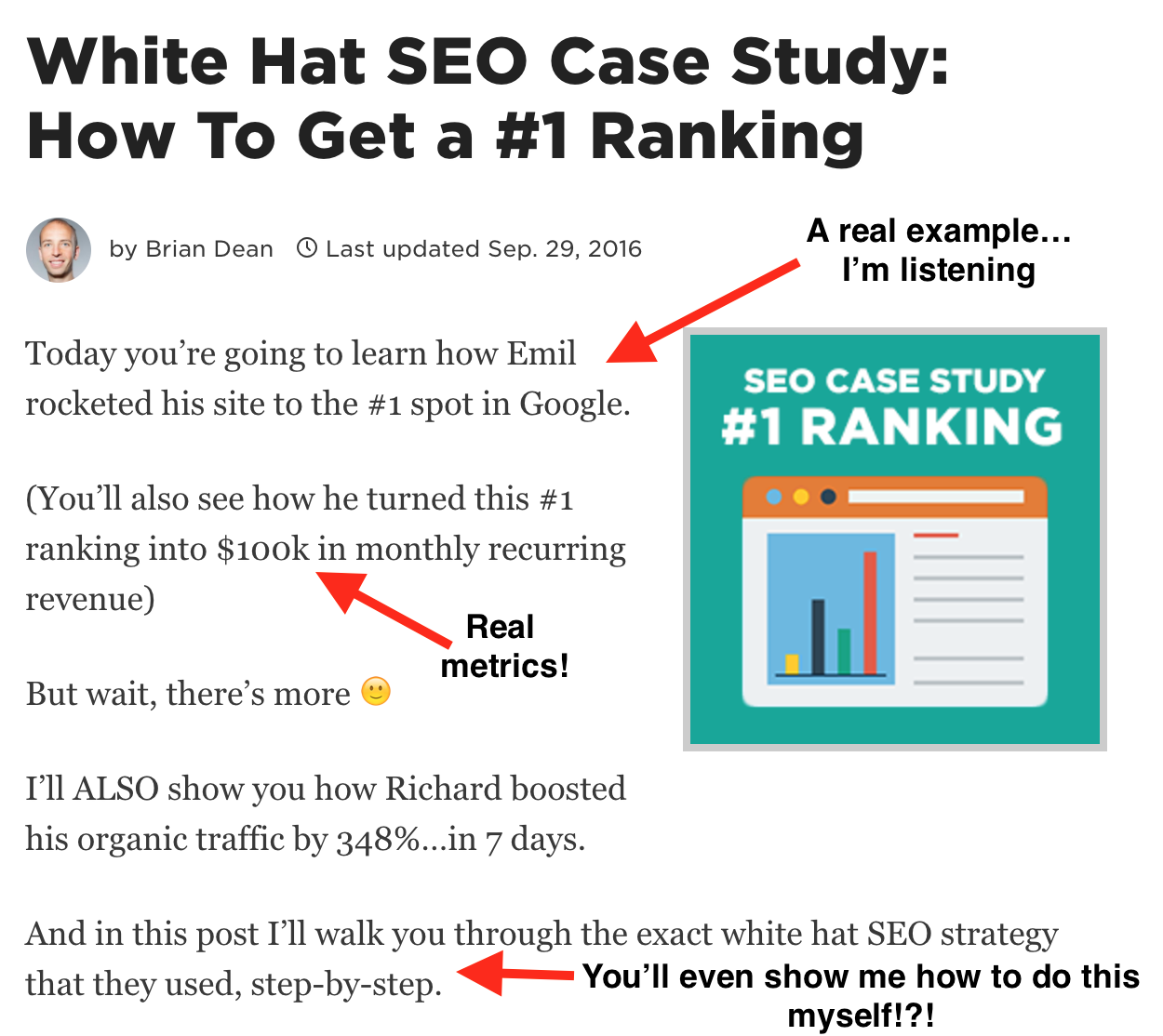
You keep reading and it doesn’t need to say things like “Search engines have always been a major way to get traffic for free”. This is because the author of the post knows that if you’re reading this post, you likely already know that.
This article shows you exactly how this guy Emil ranked number one in Google by creating a really good piece of content, promoting it, doing outreach to people, building backlinks, etc. (and he gives REAL examples).
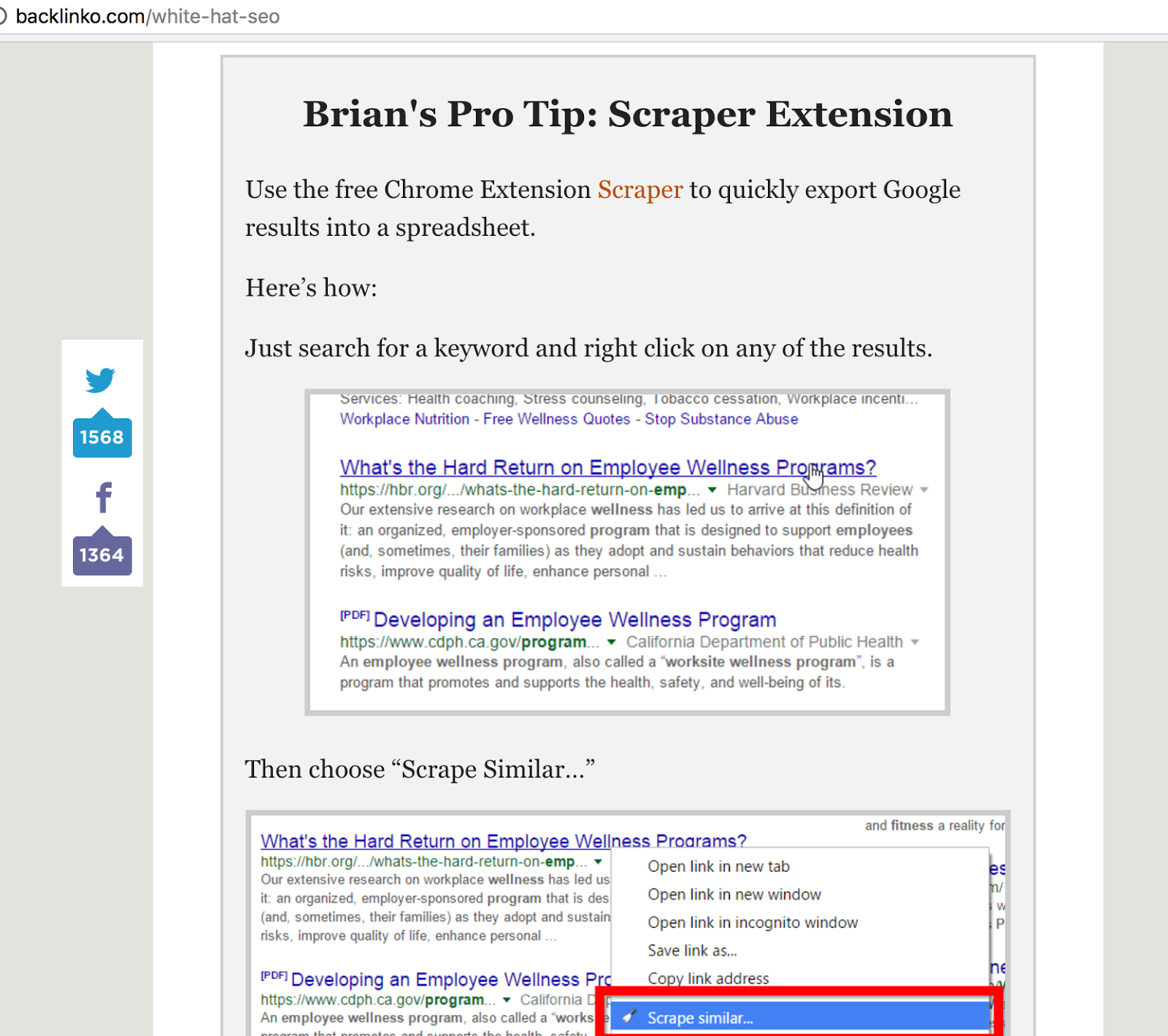
So as the reader who’s looking for help increasing their SEO, you’re thinking to yourself:
“Wow, this is awesome, no one has ever given me this advice about SEO. I need more of this stuff. Oh wait, he offers an SEO course, maybe I’ll buy it and learn from this guy. Or, wow! He offers SEO services, I don’t care how much it costs because this guy really knows his stuff about SEO.”
This is how readers make decisions when they’re looking at your content- they make a decision based on the quality of your content.
They don’t make decisions because of a shiny popup, eBook or other CTA that invites them to find out more about your product or service.
Your blog isn’t generating leads (or the amount you want) because most people, blogs and companies out there are creating MIRAGE CONTENT — high-level fluff that no one wants to read.
So stop doing it.
Not only are you turning away potential customers and wasting their time, you’re also wasting your own time creating content that’s not going to get you closer to hitting your goals.
So here’s how to solve that.
Two Ways You Can Solve For Mirage Content and Start Creating High-Quality Content That Will Convert
As I mentioned above, mirage content (or high-level fluff) stems from a writer not having real experience in the area they’re writing about.
So there’s two ways that I’ve found to solve for this problem:
- Hire a writer with experience in the area they’re writing about
- Hire a journalist who can interview a subject matter expert and turn that interview into a great post
Hire Writers With Real Experience In What They’re Writing About
It’s not enough for someone to have a “background” in marketing, sales, software development, art, writing, etc. or whatever you’re having this person write about.
You need to hire a writer with actual experience doing the task that you’re having them write about.
That means:
If you have an SEO blog: Your writers should have real experience doing SEO for themselves or for other clients.
If you have a sales blog: Your writers should have real experience selling things (and I’m not talking about selling lemonade on the street when they were five). Your writers need to have held a past role as a sales development representative, business development representative, an account executive, or a sales leader.
If you have a software development blog: Your writers should have built software before. You need to have designers, front-end engineers and back-end engineers who can write from experience on how to do this properly.
If you don’t have real experience, you run the risk of writing high school essay intros, speaking in high-level platitudes, and losing trust with your readership. Ultimately, your potential customers will be able to sniff out your BS and your content marketing efforts will become a wasted investment.
The best content comes from your in-house team. Those are the people who breathe your product or service day in and day out, and know how to explain things in-depth to your customers. Your employees have real expertise in the industry and they’re the best people to write content for your company.
However, the challenge is that not everyone in your organization has time to write blog posts AND not all of your employees are great writers.
That’s why my second strategy is best for most companies.
Hire Writers Who Can Interview Subject Matter Experts
Yes, I know, the most qualified people to write content in your company are likely short on time. It’s likely the CEO, your head of marketing, your head of sales, your best salesperson, or whomever else is the most experienced in the area you’re writing about. They’re busy doing their normal job and don’t have time to write a 800 word blog post to ‘help out marketing.’
If you’re the head of marketing or if you’re the one running your content marketing operation, it’s your job to come up with the topics to write about that will attract the right audience. Then, identify influencers in your industry or people within your company who can give your team of writers a brain dump on various topics.
I suggest hiring a team of freelance writers to interview subject matter experts and turn their knowledge into great pieces of content.
Here’s the process I use to find the best freelancers (condensed). Essentially what you’re doing is creating a funnel for writers to weed out the good ones from the bad:
- Post a job listing on AngelList, ProBlogger, or alternative source.
- Craft a writer onboarding guide (contents: overview of the company, vision for your blog, writing exercise that someone would need to complete).
- Exercise one: Have the writer pitch headlines based on the information given in the onboarding guide (people will drop off, leading you to only motivated people).
- Exercise two: If the headlines fall in line with topics on your blog, have the writer write a test post (if the writer pitched it, they should be able to write a high quality post — again people will drop off, leading you to better writers).
- Accept the writers that pass your writing test and pay them for their work. Set a price for a long-term relationship with them.
Note: If you want to learn how to write better blog posts and create a cohesive content strategy that drives results, check out our content marketing course and community. We include lots of detail and examples not found on this blog. We also answer questions and give feedback on the specific scenarios, keyword strategies, and even blog posts of community members.
How to Produce High-Quality Content At Scale — Using Freelancers and Subject Matter Experts
It’s the person’s job who is running content marketing to come up with the ideas for blog posts. Reason being: The content manager (not the freelance writer) will have a better idea of the pain points prospects and customers have.
To identify common pain points, conduct user research amongst customers and sit in on SDR (Sales Development Representative), AE (Account Executive) and customer success phone calls to hear what questions and pains potential prospects have.
Use that information to come up with ideas for posts that you can map to different parts of the sales funnel.
Then find the person in your organization who has the most subject matter on the blog post topic. For example, if it’s a blog post talking software development, I’d talk to your product manager, your head of engineering, your CTO or CEO (depending on their expertise). If we go back to the SEO examples above, and you’re a marketing agency, go talk to the person who’s responsible for SEO for clients and ask them to do an interview.
Then as the content marketing manager, I’d work with the writer to come up with the questions that need to be asked to the subject matter expert to make sure the post has enough detail to make it valuable. For the first few interviews, I’d be on the phone with the freelancer to make sure everything goes smoothly and the right questions are being asked. Then once I feel comfortable with their interviewing abilities, I’d let them tackle projects on their own. I’d still identify the best people to interview and come up with the topics, but I’d let them take care of the execution.
This is the process that I’ve run in the last 3 companies I’ve worked for. This process has allowed me to maintain high quality content while also giving me the ability to scale content production. It’s what has allowed me to grow all blogs to over 20,000 unique monthly visitors in as short as a few months and as long as a year while most of my time (and also produce hundreds of leads that converted to sales conversations). When content production was at it’s peak, I was producing upwards of 7+ pieces of quality content a week.
As a content marketing manager, there’s no way I’d have time to write every piece of content as it wouldn’t allow me to do the more important functions of my job — user research, promotion, conversion and measuring success. This is why you can’t have a writer run content marketing, you’re setting yourself up for failure — but that’s a conversation for another post.
Are you guilty of creating mirage content? Let us know if you had any realizations after reading this in the comments below.
Update (1/10/17):
One thing that I didn’t talk about originally, but that we’ve seen with many companies during our in-person trainings — Mirage content also comes from not understanding your customers in-depth.
Many times, when investing in content marketing, companies immediately jump to brainstorming content ideas that *they think* will be interesting to their audience (without thoroughly understanding who their *best customers are* and understanding everything about them). This leads to content that on the surface looks like it will attract the right audience, but that slightly misses the mark. We also consider this mirage content. You might be able to get traffic for this type of content because it serves an audience (just not yours), and when it comes to converting the proper customers for your org, most companies will complain that they’re not able to drive high quality leads.
For example, one of the companies that we worked with was a software for in app referrals. They were writing content about the benefits of using referral marketing to grow mobile app downloads. After understanding their ideal customers, we realized that their product was best served for enterprise companies who already had 50,000+ downloads. This meant that their customers were well aware of the benefits of referral marketing to grow, but simply didn’t have the resources to build an in-house referral solution. Therefore, the content that they were creating was a mirage for their ideal customers and hurt their ability to get quality leads from content marketing.
It doesn’t mean that the topic they were writing about is always a mirage but in B2B content marketing, you have a very specific user you’re trying to attract via content. So you should think of mirage content in terms of your customer’s perspective, and if they would find your posts valuable, not from a the perspective of will this be valuable to anyone who needs referral marketing.
Here’s a short clip from our up and coming B2B content marketing training program where we teardown two different blog posts — one that’s a mirage piece of content and one that’s a great piece of content for beginners:
If you’re creating “Mirage Content”, then you’re losing potential customers and likely not generating traffic. We can help, learn more here.
Onboarding Writers Guide
Get our exact word for word onboarding scripts.
We'll send it by email and add you to our free newsletter. We send in depth content marketing articles (like this one) as well as exclusive email-only ideas about once a week. It's free and you can unsubscribe at any time.



